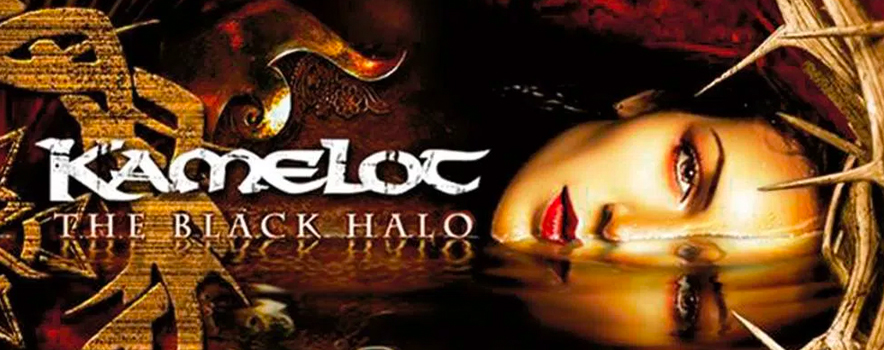 An album review by Teen Blogger, Jonathan
An album review by Teen Blogger, Jonathan
The Black Halo by Kamelot was released on March 15, 2005, and nearly every review I could find of the album started with something along the lines of “is it too early to call this Album of the Year?” The fact that I’m not surprised in the slightest is probably a good omen.
For those who have never heard of Kamelot, they’re a Symphonic Metal band based in Florida, but with members and guest musicians hailing from Holland, Germany, Norway, and recently Canada. A direct sequel to 2003’s Epica (more on that later), The Black Halo is widely considered the band’s magnum opus, and over 10 years later, it arguably still holds that title.
The first minute of the album tells almost everything you need to know. It opens with a string orchestra, the sounds of a marching army, and the demonic growls of Black Metal singer Shagrath. It sets a scene worthy of a J.R.R. Tolkien novel, and lets the listener know that they are in for nothing less than an epic experience. This escalates into a melodic guitar riff which is backed up by the aforementioned strings and a simple yet immensely powerful drum beat. This finally gives way to a haunting melody sung by Norwegian singer Roy Khan, who uses his training in opera to produce some of the most breathtaking rock performances I have ever listened to.
It’s moments like this that show the amount of pure skill these musicians have: each has their own distinct style, but they all come together to complement one another’s strengths. This synergy persists through the racing speed of “Nothing Ever Dies” to the slower, more rhythmic “Moonlight”, to the utterly beautiful power ballad that is “Abandoned”. And no matter how much is added to the mix, the sound never feels cluttered or overwhelming. Every note has purpose, every harmony has an intent, every guitar solo goes on for just as long as it needs to. That’s something that I honestly can’t say for many metal bands.
Why, yes. I did call this album a sequel. The Black Halo is actually part two of Kamelot’s rock opera that started with their 2003 album Epica. The story, loosely based on the story of Faust, tells of a man who sells his soul to an archangel named Mephisto, in return for access to infinite knowledge in the world around him. As is usually the case when someone sells their soul, it doesn’t go as planned. Despite being part two of the saga, the album’s story stands surprisingly well on it’s own. It proposes deep, complex questions about morality, love, and religion, with all of the eloquence you would expect from a fantasy epic. The album uses lines like “And we strive for the flame, as if death was our aim / Cause we cannot understand” (Soul Society) and “But when the lights are down there's no more to say. Deep in the shadows, where the last of my delusions made a stand,” (When The Lights Are Down) but somehow manages to never feel excessively dark.
And that may be the underlying trait that makes The Black Halo such a good album: It knows exactly what it wants to be, and has just the right amount of every ingredient needed to accomplish that. The music has a wealth of overlapping melodies, but they never sound like they’re fighting to be heard over one another. The lyrics are introspective and thoughtful, but never feel like they’re forcing a message onto the listener. Each member of the band plays their instrument phenomenally well, but it never feels like they’re showing off. Each individual song could be considered the album’s strongest moment, but together they create an album that is ultimately more than the sum of its parts.


Add a comment to: Album Review: The Black Halo